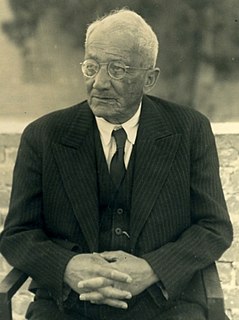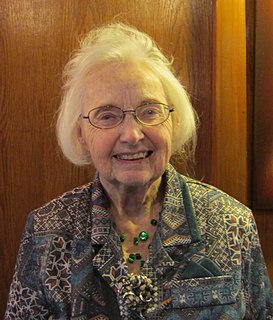A Quote by Viktor E. Frankl
Somewhere I heard a victorious "Yes" in answer to my question of the existence of ultimate purpose.
Related Quotes
In a last violent protest against the hopelessness of imminent death, I sensed my spirit piercing through the enveloping gloom. I felt it transcend that hopeless, meaningless world, and from somewhere I heard a victorious "Yes" in answer to my question of the existence of an ultimate purpose. At that moment a light was lit in a distant farmhouse, which stood on the horizon as if painted there, in the midst of the miserable gray of a dawning morning in Bavaria. "Et lux in tenebris lucet"-and the light shineth in the darkness.
The State, completely in its genesis, essentially and almost completely during the first stages of its existence, is a social institution, forced by a victorious group of men on a defeated group, with the sole purpose of regulating the dominion of the victorious group over the vanquished, and securing itself against revolt from within and attacks from abroad. Teleologically, this dominion had no other purpose than the economic exploitation of the vanquished by the victors.
The one function that most gods seem to have in common is to give human existence some ultimate purpose - and, while it is not possible to disprove an ultimate purpose, there does not seem to be any evidence for it. This is not to say, of course, that there is no purpose in life at all: we all make our own purposes as we go through life. And life does not lose its value simply because it it not going to last forever.
In claiming that prohibition, not the drugs themselves, is the problem, Nadelmann and many others - even policemen - have said that "the war on drugs is lost." But to demand a yes or no answer to the question "Is the war against drugs being won?" is like demanding a yes or no answer to the question "Have you stopped beating your wife yet?" Never can an unimaginative and fundamentally stupid metaphor have exerted a more baleful effect upon proper thought.
To be a scientist you have to be willing to live with uncertainty for a long time. Research scientists begin with a question and they take a decade or two to find an answer. Then the answer they get may not even answer the question they thought it would. You have to have a supple enough mind to be open to the possibility that the answer sometimes precedes the question itself.
Suicide may also be regarded as an experiment - a question which man puts to Nature, trying to force her to answer. The question is this: What change will death produce in a man's existence and in his insight into the nature of things? It is a clumsy experiment to make; for it involves the destruction of the very consciousness which puts the question and awaits the answer.
I gained everything. Or at least I'll think so," he growled, suddenly impatient, anxious, "when you give me a bloody answer to my bloody question. How many times are you going to make me ask you? Will you marry me, Gabrielle O'Callaghan? Yes or yes? And in case you're still managing to miss the point, the correct answer is 'yes.' And, by the way, anytime you'd like to tell me you love me, I wouldn't mind hearing it.





































